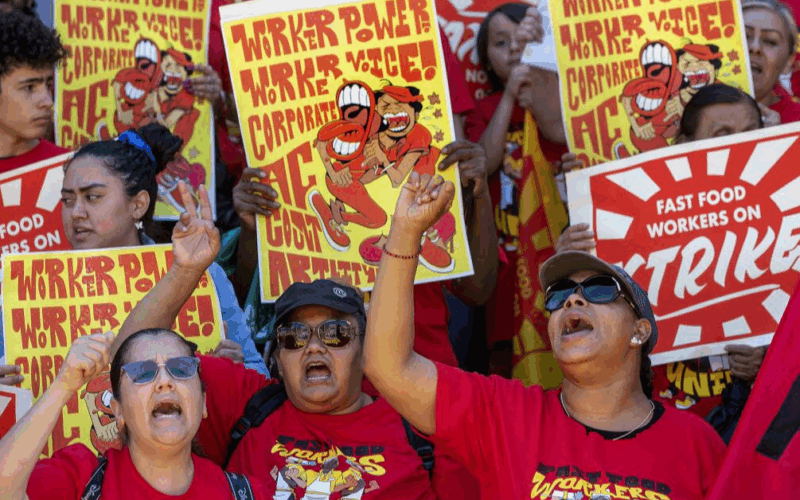When you’re hungry and waiting in a long line at a fast food restaurant, it’s easy to get frustrated. Sometimes, people may let their anger out by using rude language towards the employees. But is it illegal to cuss out a fast food worker in Texas? Many wonder about the laws behind this situation and what could happen if you cross the line with bad words.
This article will explain the legal aspects of using offensive language in public, especially in fast food settings in Texas. We will also cover the difference between free speech and actions that might get you in trouble with the law or the restaurant staff. Read on to learn more about your rights and responsibilities.
First Amendment and Free Speech in Texas
In the United States, free speech is protected by the First Amendment. This means people have the right to express themselves, even if their words are harsh or offensive. However, this protection has limits, especially when speech leads to violence or harassment. According to the American Civil Liberties Union (ACLU), offensive language is rarely illegal unless it crosses into fighting words or threats.
In Texas, cursing at someone, including a fast food employee, is generally not a crime. The law focuses more on actions than words alone. If your words include direct threats or cause a physical fight, legal consequences can follow. But simply using curse words or expressing frustration, while rude, is usually protected free speech.
When Can Cussing Become Illegal in Texas?
While saying bad words is often tolerated, there are cases where it can cross the line. Texas law punishes certain behaviors related to words under categories like harassment, disorderly conduct, or creating a disturbance. According to the Texas Penal Code, if your speech is considered fighting words or disrupts public peace, you could face charges.
For example, yelling vulgar language that provokes violence or threatens the safety of others might be illegal. Similarly, if your language is part of repeated harassment toward an employee, you could be charged with harassment. However, just being upset and cussing one time usually isn’t enough for legal trouble, unless the restaurant decides to involve the police.
Fast Food Restaurants and Their Policies
Fast food companies in Texas have their own rules about customer behaviour. Employees have the right to refuse service to anyone who is abusive or disruptive. If you are cussing loudly or verbally abusing staff, the restaurant may ask you to leave. This is not a legal issue but a business decision to keep the environment safe and comfortable for employees and other customers.
Some restaurants may take serious threats or repeated verbal abuse as grounds to ban a customer permanently. It’s important to remember that employees deserve respect and kindness, even if mistakes happen. Being polite can avoid unnecessary problems and keep your dining experience pleasant.
What Should You Do If You Feel Angry or Frustrated?
It’s natural to feel upset if your order is wrong or the service is slow. Instead of using harsh language, try to explain your problem calmly. Most fast food workers want to help and fix issues quickly. If you feel the situation is unfair, you can ask to speak with a manager rather than insulting staff.
Keeping your cool also protects you from any possible legal or personal consequences. Remember, cussing may not always be illegal, but it can lead to being kicked out, banned, or worse, legal trouble if things get out of control.
Conclusion: Respect Goes Both Ways
In Texas, it is usually not illegal to cuss out a fast food employee, but it could lead to trouble if the language includes threats, harassment, or causes a disturbance. The First Amendment protects free speech, but that does not mean there are no limits, especially when it comes to respect and safety. Both customers and employees deserve polite and peaceful interactions for a better experience.
Always be mindful of your words and behaviour in public places. If you want to learn more about your rights, you can visit official sources like the Texas Penal Code or organizations like the ACLU for detailed explanations (ACLU Free Speech Rights).




